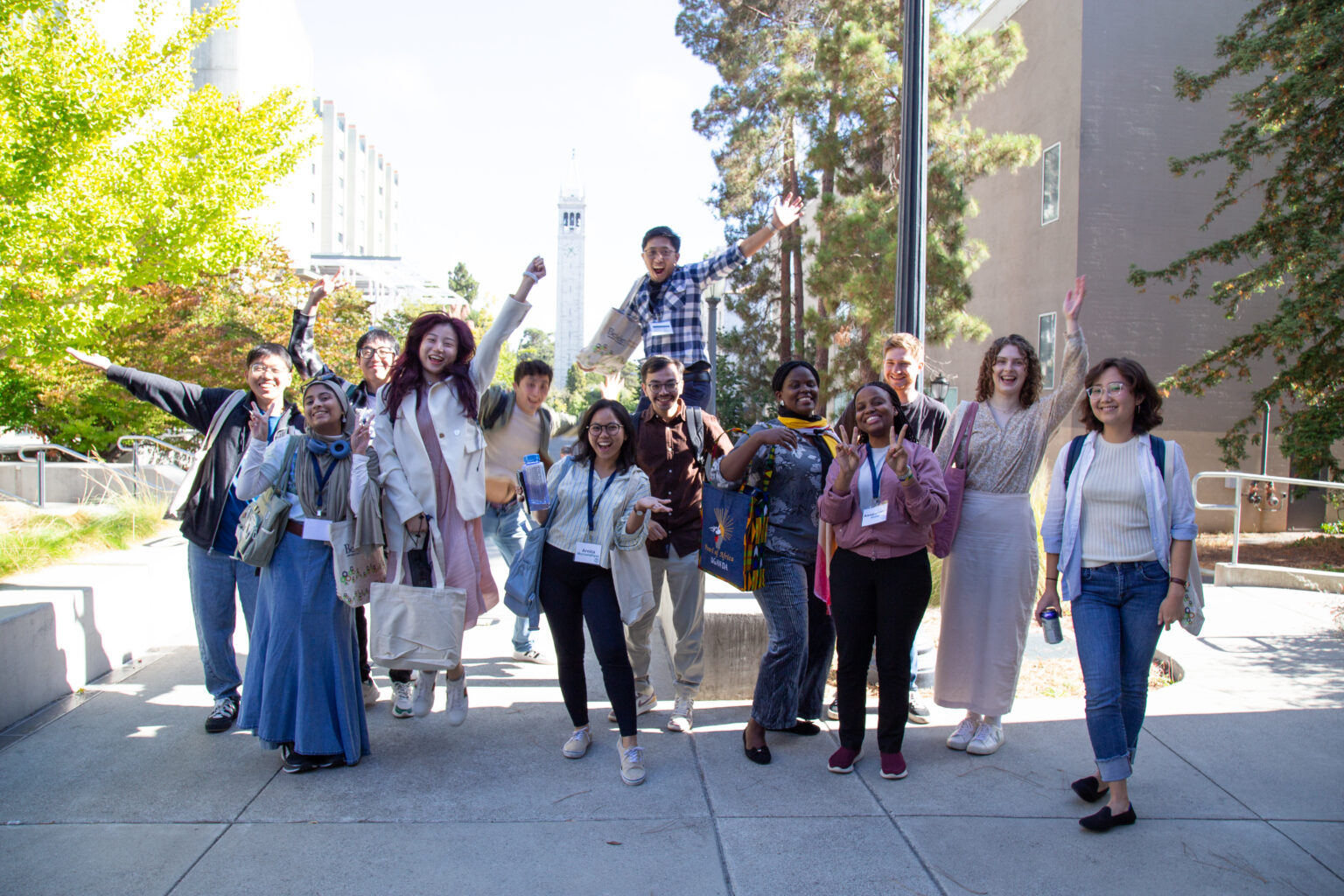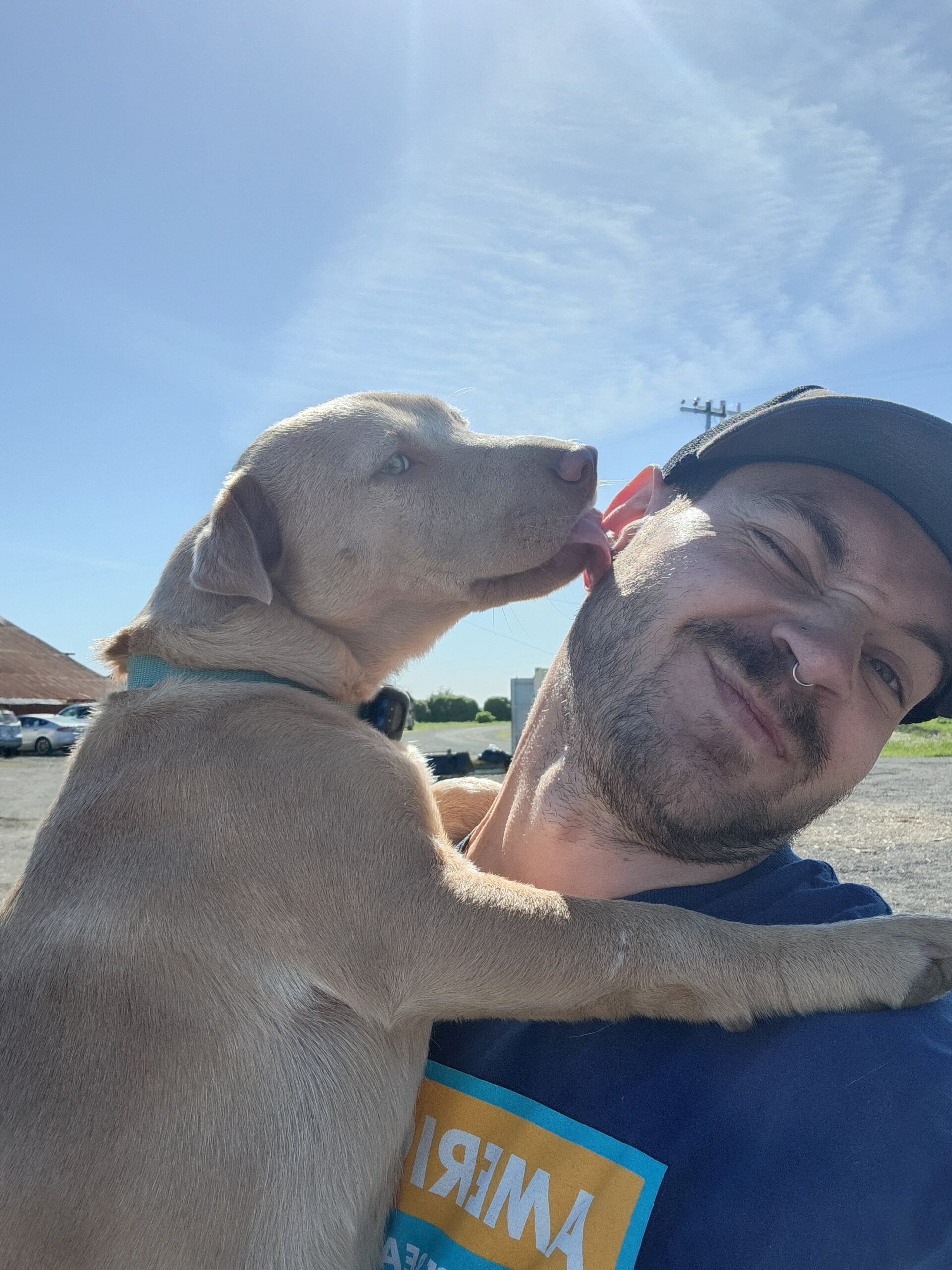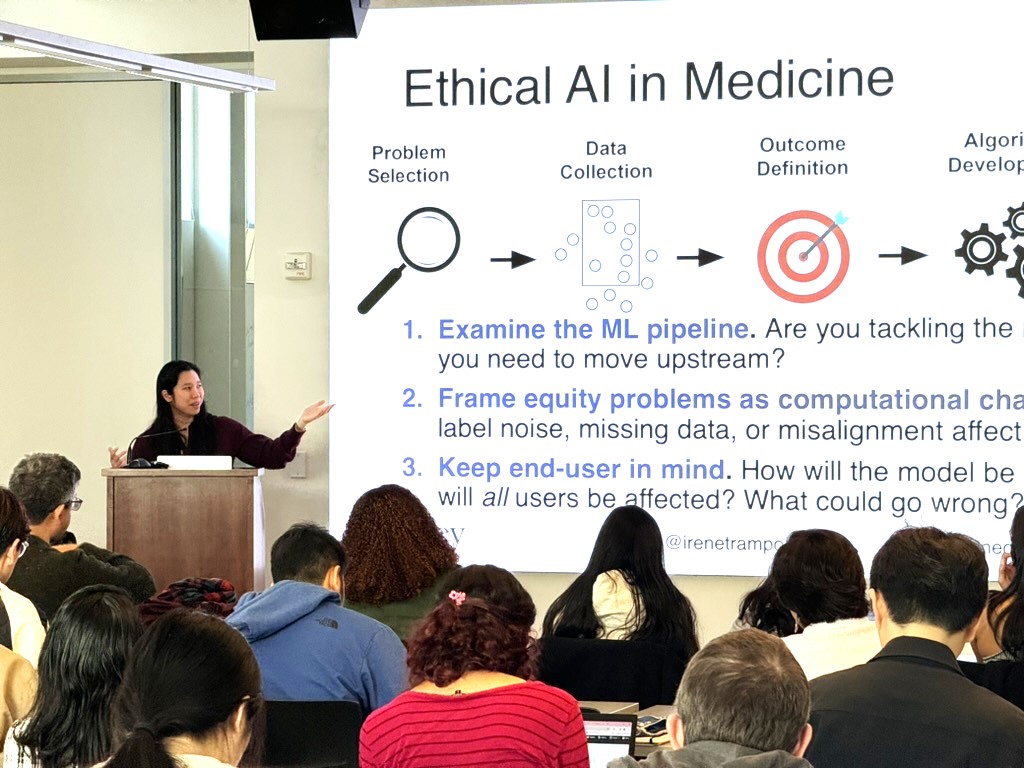Mingxi Tang studied finance at The Chinese University of Hong Kong, Shenzhen, and had plans to pursue a career in the industry after graduation. Her path took a sudden turn the day she discovered a video on the UC Berkeley website — an introduction to the Master of Development Engineering program.
The video showcased MDevEng professors working in under-resourced regions across the world, striving to improve the lives of people living in low-income communities using technology to measure soil nutrients for crop growth. Inspired by the various student projects she saw on the website, Tang applied, was accepted, and packed her bags for Berkeley.
“Honestly, I was really moved. I knew I had to apply to the program, because I wanted to learn the technical skills I need to help people live better lives,” Tang said.
Tang is now one of the 28 students that make up the fourth MDevEng cohort. The class of 2025 comes from all over the world, with students hailing from China, Uganda, Ireland, and beyond, and having academic backgrounds ranging from mechanical engineering to applied languages. On August 22, Tang met up with the rest of her classmates — each pursuing their own concentrations such as sustainable design and AI and data analytics — at Blum Hall for the start of MDevEng orientation.
“We’re all coming from different disciplines and communities, and now we’ll learn how to work together,” MDevEng Program Director Yael Perez said to the new cohort to kick off orientation.
The MDevEng program is a 15-month experience merging in-depth technology studies with human development courses to prepare students for careers in social impact, social entrepreneurship, and sustainability. Over three semesters, students engage in technical problem solving, cross-cultural collaboration, and community development, including a summer internship and a final capstone project.
Previous MDevEng students have played a pivotal role in developing solutions to social initiatives across the world, including assessing the effectiveness of health clinics’ off-grid power systems in rural Rwanda; developing FireTools, a platform designed to support local decision-makers in improving disaster preparedness for low-resource communities; and empowering women in English-speaking African countries by offering training in advanced digital skills, helping to boost female employment opportunities in technology fields.
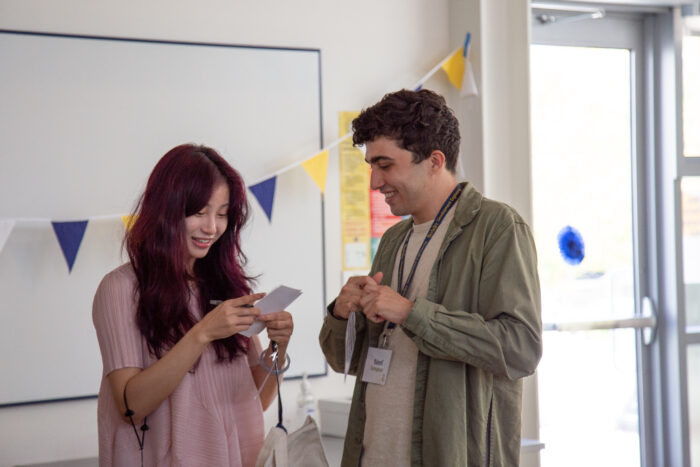
During the reception for the incoming cohort, Blum Chancellor’s Chair in Development Engineering and Professor Kara Nelson offered advice on how to make the most of the three-semester program, drawing from her own career pathway to share her experience with students. Nelson described how she was often told to stick to a single field of study, reflecting on the limitations of engineering programs of the past.
“This program did not exist when I was a student. Professors would meet with me [about my project ideas] and tell me ‘you can’t do that!’ But today, we’re here to tell you that ‘you can do that!’” Nelson said. “You all have your own interests, your own backgrounds, and you know what your vision is. We’re here to support you and help you paint that path.”
Among the cohort, many students share the common goal of applying AI and emerging technologies to create sustainable solutions for improving quality of life. Tang, for instance, aims to develop her skills in supervised machine learning to create technology that can improve the lives of people with disabilities.
“I want to acquire a lot of skills during my time here and use my knowledge about AI and machines to help improve people’s lives,” Tang said. “With the kind of experience this program can offer me, I feel like I can definitely achieve that.”
Throughout orientation, many students vocalized similar aspirations to serve underprivileged communities, among them Pratiyush Singh, a Berkeley graduate who studied civil engineering and is passionate about addressing climate adaptation and water quality issues in India and Africa.
After two years in industry, Singh saw a disconnect between his work and the communities he aimed to serve. This pushed him to apply to the MDevEng program, where he wanted to employ his expertise in a more impactful way. Singh found the program unique in that it allowed him greater control over the kind of projects he would work on, and a focus on practical application rather than traditional learning methods.
“Through this program, I want to learn more about using AI and data to scale technologies for low-resource communities,” he said. “I’m going to continue my past work that focused on addressing water quality challenges, and hopefully I’ll improve along the way.”
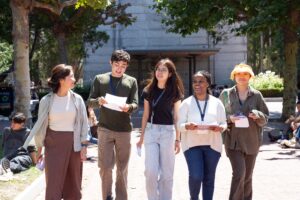
During orientation, students participated in an activity where they answered what Development Engineering meant to them using a single word. Common responses displayed on the projector screen included “sustainable,” “solutions,” and “community.” However, Singh’s choice of the word “minority” stood out to the cohort.
“I think of it as justice engineering at the end of the day, because the solutions we’re creating are taken to and impacting minority communities,” Singh explained. “I feel like when you address those problems, it’s a form of social justice.”
Orientation concluded with an alumni panel featuring Morris Chang, Kaavya “Kavi” Reddy, and Kangogo Sogomo from previous MDevEng cohorts, followed by a social mixer that brought together past and current cohorts, as well as MDevEng faculty and staff. It was the first event of its kind for an MDevEng orientation.
Reddy, an alum from the first MDevEng class, invited students interested in working with climate change and government organizations to talk to her during the mixer and exchange ideas. Now working with the science-entrepreneurship nonprofit ACTIVATE, Reddy, who started her own concentration while at Berkeley, encouraged the class to pursue projects they were passionate about.
She concluded with a powerful piece of advice: “Take Development Engineering and make it work for you!”
She elaborated, “If you go out [into the workforce] and you’re not really sure where you fit in [as a DevEnger,] then you’re feeling exactly what you’re supposed to,” Reddy said. “We’re so brand new that we’re bringing this entire discipline to the world.”

